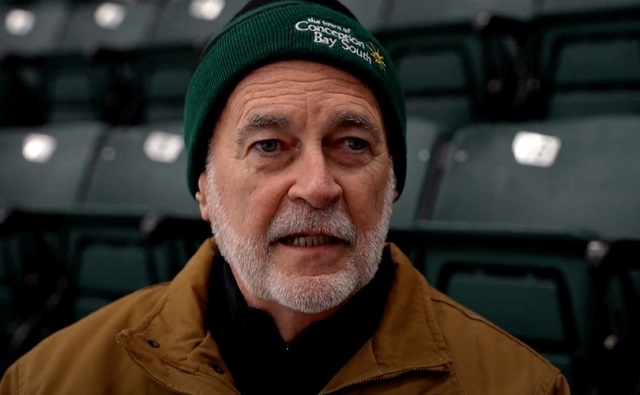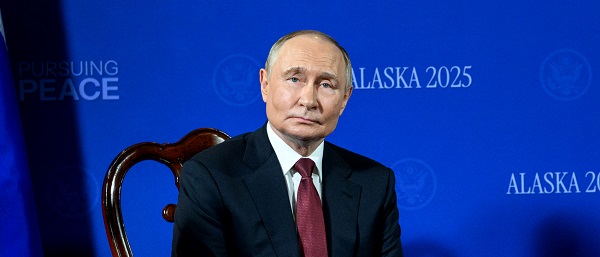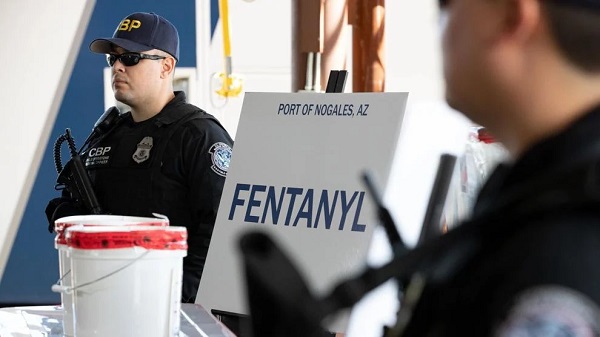National
Liberal MP calls for review of Trudeau’s leadership: ‘Every leader has a best-before date’

Ken McDonald, MP
From LifeSiteNews
” at least give people the opportunity to have their say “
Liberal Member of Parliament (MP) Ken McDonald is calling for a review of Prime Minister Justin Trudeau’s leadership.
In a January 24 interview with the Canadian Broadcasting Corporation (CBC), McDonald, a Newfoundland MP, argued that Canadians should be given an opportunity to replace Trudeau as leader of the Liberal Party.
“Every leader, every party has a best-before date. Our best-before date is here,” he declared.
McDonald observed that Trudeau managed to lead the Liberal Party to victory in 2015. However, he also noted that Trudeau has since disappointed Canadians.
“As a party, let’s clear the air, and if people are still intent on having the leader we have now, fine. But at least give people the opportunity to have their say in what they think [of] the direction the party is going,” he said.
Trudeau seems to have already attempted to regain popularity in Atlantic Canada by pausing the collection of the carbon tax on home heating oil for three years.
However, the exemption has led to increased dislike for Trudeau nationwide as it primarily benefits the Liberal-held Atlantic provinces, leaving other provinces literally out in the cold as they heat their homes with clean-burning natural gas, a fuel that will not be exempted from the carbon tax.
Following this, five Canadian premiers from coast to coast banded together to demand Trudeau drop the carbon tax on home heating bills for all provinces, saying his policy of giving one region a tax break over another has caused “divisions.”
In recent months, Trudeau’s popularity with Canadians has plummeted, with polls revealing that most Canadians think that he should step down before the next election.
McDonald is not the only member of the Liberal Party to condemn Trudeau’s leadership. In November, Liberal Senator Percy Downe wrote that the Liberal party needs to look for another leader.
Recent polling shows that support for Pierre Poilievre’s Conservative Party is hitting positive levels not seen since the early days of former Prime Minister Stephen Harper. Indeed, a Federal @338Canada model has the “Outcome Odds” for a Conservative majority government at 95 percent.
Digging a little deeper, a recent Leger poll shows the Conservatives taking some 211 seats, a gain of 90 seats (well over the majority of 170 needed) with the Trudeau Liberals losing 90 seats. They would win only 70 if an election were held today.
Earlier this week, Trudeau’s reputation took another blow: the Federal Court ruled that his use of the Emergencies Act in response to the 2022 Freedom Convoy was “not justified” and a violation of Charter rights. Notably, the ruling came from a Liberal appointed judge.
During the convoy, Trudeau had disparaged unvaccinated Canadians, saying those opposing his measures were of a “small, fringe minority” who held “unacceptable views” and did not “represent the views of Canadians who have been there for each other.”
In response to the ruling, Conservative Party leader Pierre Poilievre called for Trudeau to be ‘fired.’ He argued that the current Prime Minister “caused the crisis by dividing people. Then he violated Charter rights to illegally suppress citizens.”
“As PM, I will unite our country for freedom,” he promised.
Alberta
Canada’s New Green Deal

From Resource Works
Nuclear power a key piece of Western Canadian energy transition
Just reading the headlines, Canadians can be forgiven for thinking last week’s historic agreement between Alberta and Ottawa was all about oil and pipelines, and all about Alberta.
It’s much bigger than that.
The memorandum of understanding signed between Canada and Alberta is an ambitious Western Canadian industrial, energy and decarbonization strategy all in one.
The strategy aims to decarbonize the oil and gas sectors through large-scale carbon capture and storage, industrial carbon pricing, methane abatement, industrial electrification, and nuclear power.
It would also provide Canadian “cloud sovereignty” through AI computing power, and would tie B.C. and Saskatchewan into the Alberta dynamo with beefed up power transmission interties.
A new nuclear keystone
Energy Alberta’s Peace River Nuclear Power Project could be a keystone to the strategy.
The MOU sets January 1, 2027 as the date for a new nuclear energy strategy to provide nuclear power “to an interconnected market” by 2050.
Scott Henuset, CEO for Energy Alberta, was pleased to see the nuclear energy strategy included in the MOU.
“We, two years ago, went out on a limb and said we’re going to do this, really believing that this was the path forward, and now we’re seeing everyone coming along that this is the path forward for power in Canada,” he said.
The company proposes to build a four-unit, 4,800-megawatt Candu Monark power plant in Peace River, Alberta. That’s equivalent to four Site C dams worth of power.
The project this year entered a joint review by the Impact Assessment Agency and Canadian Nuclear Safety Commission.
If approved, and all goes to schedule, the first 1,000-MW unit could begin producing power in 2035.
Indigenous consultation and experienced leadership
“I think that having this strategy broadly points to a cleaner energy future, while at the same time recognizing that oil still is going to be a fundamental driver of economies for decades to come,” said Ian Anderson, the former CEO of Trans Mountain Corporation who now serves as an advisor to Energy Alberta.
Energy Alberta is engaged with 37 First Nations and Metis groups in Alberta on the project. Anderson was brought on board to help with indigenous consultation.
While working on the Trans Mountain pipeline expansion, Anderson spent a decade working with more than 60 First Nations in B.C. and Alberta to negotiate impact benefit agreements.
In addition to indigenous consultations, Anderson is also helping out with government relations, and has met with B.C. Energy Minister Adrian Dix, BC Hydro chairman Glen Clark and the head of Powerex to discuss the potential for B.C. beef up interties between the two provinces.
“I’ve done a lot of political work in B.C. over the decade, so it’s a natural place for me to assist,” Anderson said. “Hopefully it doesn’t get distracted by the pipeline debate. They’re two separate agendas and objectives.”
Powering the grid and the neighbours
B.C. is facing a looming shortage of industrial power, to the point where it now plans to ration it.
“We see our project as a backbone to support renewables, support industrial growth, support data centres as well as support larger interties to B.C. which will also strengthen the Canadian grid as a whole,” Henuset said.
Despite all the new power generation B.C. has built and plans to build, industrial demand is expected to far exceed supply. One of the drivers of that future demand is requests for power for AI data centres.
The B.C. government recently announced Bill 31 — the Energy Statutes Amendment Act – which will prioritize mines and LNG plants for industrial power.
Other energy intensive industries, like bitcoin mining, AI data centres and green hydrogen will either be explicitly excluded or put on a power connection wait list.
Beefed up grid connections with Alberta – something that has been discussed for decades – could provide B.C. with a new source of zero-emission power from Alberta, though it might have to loosen its long-standing anti-nuclear power stance.
Energy Minister Adrian Dix was asked in the Legislature this week if B.C. is open to accessing a nuclear-powered grid, and his answer was deflective.
“The member will know that we have been working with Alberta on making improvements to the intertie,” Dix answered. “Alberta has made commitments since 2007 to improve those connections. It has not done so.
“We are fully engaged with the province of Alberta on that question. He’ll also know that we are, under the Clean Electricity Act, not pursuing nuclear opportunities in B.C. and will not be in the future.”
The B.C. NDP government seems to be telling Alberta, “not only do we not want Alberta’s dirty oil, we don’t want any of its clean electricity either.”
Interconnected markets
Meanwhile, BC Hydro’s second quarter report confirms it is still a net importer of electricity, said Barry Penner, chairman of the Energy Futures Initiative.
“We have been buying nuclear power from the United States,” he said. “California has one operating power plant and there’s other nuclear power plants around the western half of the United States.”
In a recent blog post, Penner notes: “BC Hydro had to import power even as 7,291 megawatts of requested electrical service was left waiting in our province.”
If the NDP government wants B.C. to participate in an ambitious Western Canadian energy transition project, it might have to drop its holier-than-thou attitude towards Alberta, oil and nuclear power.
“We’re looking at our project as an Alberta project that has potential to support Western Canada as a whole,” Henuset said.
“We see our project as a backbone to support renewables, support industrial growth, support data centres, as well as support larger interties to B.C., which will also strengthen the Canadian grid as a whole.”
The investment challenge
The strategy that Alberta and Ottawa have laid out is ambitious, and will require tens of billions in investment.
“The question in the market is how much improvement in the regulatory prospects do we need to see in order for capital to be committed to the projects,” Anderson said.
The federal government will need to play a role in derisking the project, as it has done with the new Darlington nuclear project, with financing from the Canada Growth Fund and Canadian Infrastructure Bank.
“There will be avenues of federal support that will help derisk the project for private equity investors, as well as for banks,” Henuset said.
One selling point for the environmental crowd is that a combination of carbon capture and nuclear power could facilitate a blue and green hydrogen industry.
But to really sell this plan to the climate concerned, what is needed is a full assessment of the potential GHG reductions that may accrue from things like nuclear power, CCS, industrial carbon pricing and all of the other measures for decarbonization.
Fortunately, the MOU also scraps greenwashing laws that prevent those sorts of calculations from being done.
Resource Works News
armed forces
Ottawa’s Newly Released Defence Plan Crosses a Dangerous Line

From the Frontier Centre for Public Policy
By David Redman
Canada’s Defence Mobilization Plan blurs legal lines, endangers untrained civil servants, and bypasses provinces. The Plan raises serious questions about military overreach, readiness, and political motives behind rushed federal emergency planning.
The new defence plan looks simple on paper. The risks are anything but.
Canadians have grown used to bad news about the Canadian Armed Forces (CAF), but the newly revealed defence mobilization plan is in a category of its own.
After years of controversy over capability, morale, and leadership challenges, the military’s senior ranks now appear willing to back a plan that misunderstands emergency law, sidelines provincial authority, and proposes to place untrained civil servants in harm’s way.
The document is a Defence Mobilization Plan (DMP), normally an internal framework outlining how the military would expand or organize its forces in a major crisis.
The nine-page plan was dated May 30, 2025, but only reached public view when media outlets reported on it. One article reports that the plan would create a supplementary force made up of volunteer public servants from federal and provincial governments. Those who join this civil defence corps would face less restrictive age limits, lower fitness requirements, and only five days of training per year. In that time, volunteers would be expected to learn skills such as shooting, tactical movement, communicating, driving a truck, and flying a drone. They would receive medical coverage during training but not pensionable benefits.
The DMP was circulated to 20 senior commanders and admirals, including leaders at NORAD, NATO, special forces, and Cybercom. The lack of recorded objection can reasonably raise concerns about how thoroughly its implications were reviewed.
The legal context explains much of the reaction. The Emergencies Act places responsibility for public welfare and public order emergencies on the provinces and territories unless they request federal help. Emergency response is primarily a provincial role because provinces oversee policing, natural disaster management, and most front-line public services. Yet the DMP document seems to assume federal and military control in situations where the law does not allow it. That is a clear break from how the military is expected to operate.
The Emergency Management Act reinforces that civilian agencies lead domestic emergencies and the military is a force of last resort. Under the law, this means the CAF is deployed only after provincial and local systems have been exhausted or cannot respond. The Defence Mobilization Plan, however, presents the military as a routine responder, which does not match the legal structure that sets out federal and provincial roles.
Premiers have often turned to the military first during floods and fires, but those political habits do not remove the responsibility of senior military leaders to work within the law and respect their mandate.
Capacity is another issue. Combat-capable personnel take years to train, and the institution is already well below its authorized strength. Any task that diverts resources from readiness weakens national defence, yet the DMP proposes to assign the military new responsibilities and add a civilian component to meet them.
The suggestion that the military and its proposed civilian force should routinely respond to climate-related events is hard to square with the CAF’s defined role. It raises the question of whether this reflects policy misjudgment or an effort to apply military tools to problems that are normally handled by civilian systems.
The plan also treats hazards unrelated to warfighting as if the military is responsible for them. Every province and territory already has an emergency management organization that monitors hazards, coordinates responses and manages recovery. These systems use federal support when required, but the military becomes involved only when they are overwhelmed. If Canada wants to revive a 1950s-style civil defence model, major legislative changes would be needed. The document proceeds as if no such changes are required.
The DMP’s training assumptions deepen the concerns. Suggesting that tasks such as “shooting, moving, communicating, driving a truck and flying a drone” can be taught in a single five-day block does not reflect the standards of any modern military. These skills take time to learn and years to master.
The plan also appears aligned with the government’s desire to show quick progress toward NATO’s defence spending benchmark of two percent of GDP and eventually five percent. Its structure could allow civil servants’ pay and allowances to be counted toward defence spending.
Any civil servant who joins this proposed force would be placed in potentially hazardous situations with minimal training. For many Canadians, that level of risk will seem unreasonable.
The fact that the DMP circulated through senior military leadership without signs of resistance raises concerns about accountability at the highest levels. That the chief of the defence staff reconsidered the plan only after public criticism reinforces those concerns.
The Defence Mobilization Plan risks placing civil servants in danger through a structure that appears poorly conceived and operationally weak. The consequences for public trust and institutional credibility are becoming difficult to ignore.
David Redman had a distinguished military career before becoming the head of the Alberta Emergency Management Agency in 2004. He led the team in developing the 2005 Provincial Pandemic Influenza Plan. He retired in 2013. He writes here for the Frontier Centre for Public Policy.
-

 Censorship Industrial Complex1 day ago
Censorship Industrial Complex1 day agoDeath by a thousand clicks – government censorship of Canada’s internet
-

 Alberta1 day ago
Alberta1 day agoSchools should go back to basics to mitigate effects of AI
-

 International1 day ago
International1 day agoAt Least 15 Killed In Shooting Targeting Jewish Community At Australia’s Bondi Beach, Police Say
-

 Daily Caller1 day ago
Daily Caller1 day agoChinese Billionaire Tried To Build US-Born Baby Empire As Overseas Elites Turn To American Surrogates
-

 Great Reset1 day ago
Great Reset1 day agoViral TikTok video shows 7-year-old cuddling great-grandfather before he’s euthanized
-

 Business1 day ago
Business1 day agoMajor tax changes in 2026: Report
-

 International1 day ago
International1 day agoRussia Now Open To Ukraine Joining EU, Officials Briefed On Peace Deal Say
-

 Crime17 hours ago
Crime17 hours agoTrump designates fentanyl a ‘weapon of mass destruction’


